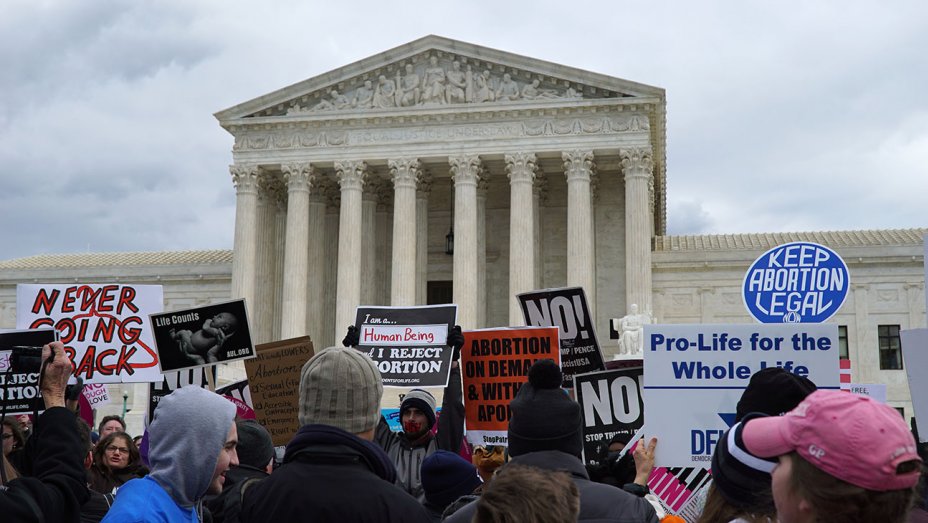
Dir: Ricki Stern/Annie Sundberg | Doc | US | 90′
Ricki Stern and Annie Sundberg explore the history of the abortion debate in this well-researched and workmanlike documentary that avoids filmic flourishes and brings nothing new to the story. It is nonetheless a worthwhile summation of what has gone before in various film and TV outings and might help cristalise viewers own thoughts or further inform those with little knowledge of the polemic.
While same sex couples are busy bringing up their children in most parts of Europe, the pro-life lobby in the United States still rages vehemently for a ban on abortion 45 years after the Supreme Court declared the practice legal with the Roe v. Wade case. While legal challenges and restrictions continue to thwart women wishing to end their pregnancies, the fact remains that doing so is still a highly personal decision. And while the film begins on an emotional note with a mother breaking down in court, what follows is a pragmatic detached study that seeks to illuminate the issues from a variety of difference standpoints with archive footage, newsreels and interviews showing both sides of the equation.
Gloria Steinem maintains that it is a woman’s right to control her own body. Meanwhile Texan Right to Life campaigner John Seago, believes abortion is murder. On the middle ground, the appealing and well-informed Rev. Tom Davis was instrumental in advising women how to gain access to a sympathetic doctor before abortion was made legal, and he points out that illegal abortions were rarely prosecuted at that time. The wealthy have always been able to access a termination, but it was the poor and particularly Black women who often took extreme measures, with tragic results. But after the law changed, restrictions ironically came into effect in at least 4 US States.
In St Louis, a calm and committed gynaecologist Dr Coleen McNicholas believes in choice and travels from her clinic in Missouri to help those women affected by the state restrictions. In contrast, Troy Newman of Operation Rescue, resorts to the Bible to justify his pro-life beliefs, and is proud about his success in shutting down several abortion clinics. McNicholas emerges the most convincing of the two from both a scientific and personal point of view.
This rather didactic study then chronicles the various political standpoints of the debate charting the administrations of Ronald Reagan, George H.W. Bush and Donald Trump, and showing how as individuals they were more liberally- minded until it came to the election campaigns.
What’s missing here is the grey area of pro-life and pro-choice: an analysis on the various parties’ view on the stages of pregnancy and how this ethical analysis relates to the legal and the political aspects of abortion, hinging on the crucial moment when life is considered to begin: on conception, when a heartbeat is discernible, when the foetus is fully formed just prior to birth or at birth? Some may agree that abortion should not be available after three months. others longer etc. None of this is really dealt with. The filmmakers could also have developed the strand about language and phraseology surrounding the debate. Rights Lawyer Kathryn Kolbert and Dr McNicholas both argued that the phrase “partial birth abortion” is not an accepted medical term, and is not used by abortion practitioners or the medical community at large. The phrase is used by pro-lifers as a politically-weighted term to describe the dilation of the cervix to extract a foetus before term. All in all, this is a thorough examination that triumphs in maintaining a detached view and in relating the facts as they stand today, with abortion rights hanging in the balance of the Supreme Court. MT
TELLURIDE FILM FESTIVAL | 31 AUGUST – 3 SEPTEMBER 2018 ON NETFLIX from 13 September 2018